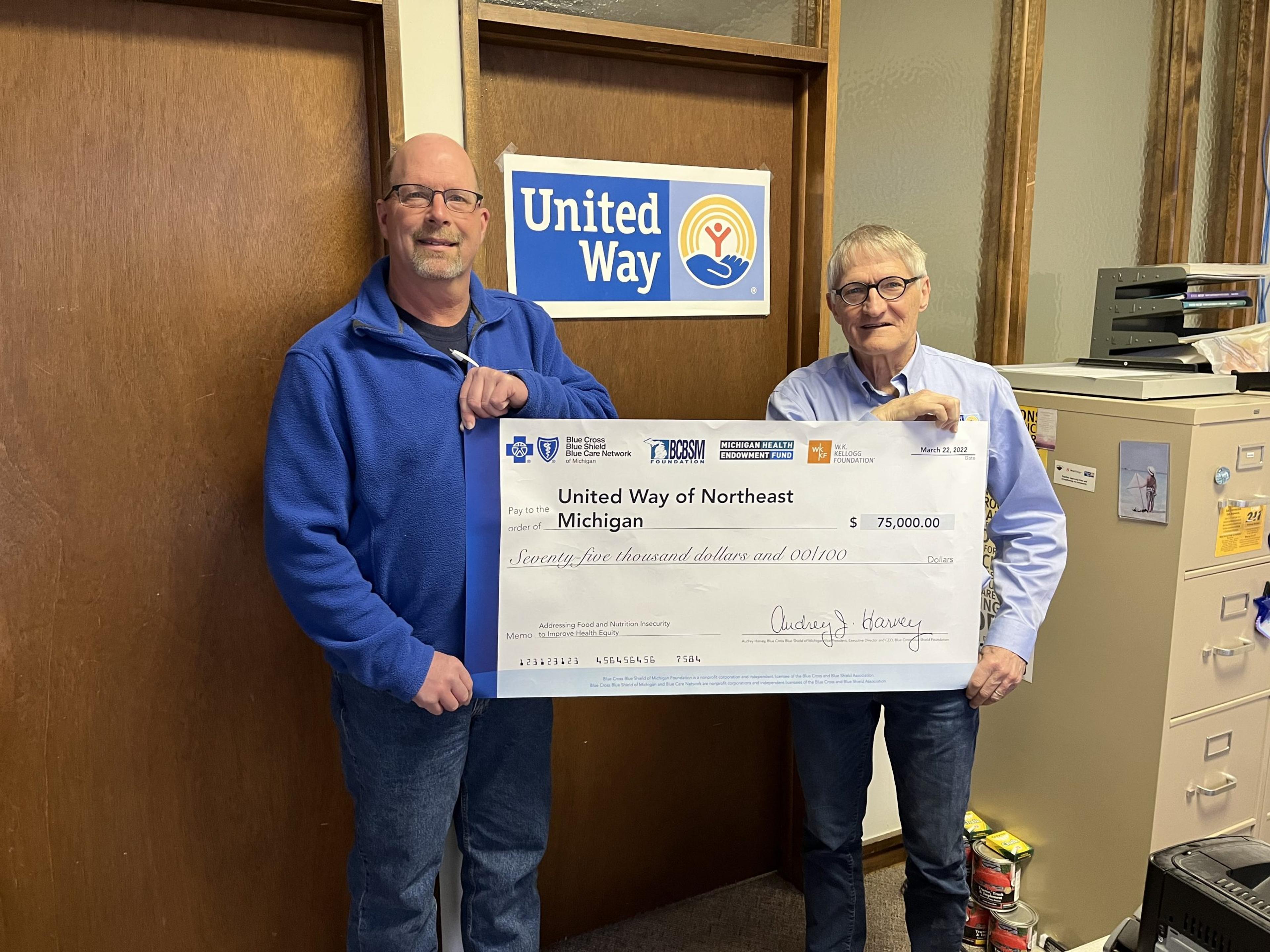Michigan Organizations Addressing Hunger Through Food and Nutrition Insecurity Grant Funding for Better Food Access
Jake Newby
| 5 min read

According to a 2021 Feeding America report, in Michigan, 13% of the population is food insecure, compared to 10.9% of people in the U.S. Food insecurity is defined as limited or uncertain availability of nutritionally adequate and safe foods or limited or uncertain ability to acquire acceptable foods in easily accessible ways. Food and nutrition insecurity is a significant public health problem in the United States, leading to substantial social, economic, and healthcare-related burdens. Food-insecure individuals have a significantly higher probability of death from any cause, including cardiovascular disease. The statewide need for better food access and availability is why the United Way of Northeast Michigan (NE MI) and Oakland University (OU) wasted no time putting grant funding to good use in 2022. The United Way of NE MI and OU are two of the 14 organizations that received “Addressing Food and Nutrition Insecurity to Improve Health Equity” grants in December 2021. The funding was a collaborative effort presented by Blue Cross Blue Shield of Michigan (BCBSM) Foundation, BCBSM Social Mission, Michigan Health Endowment Fund, and the W.K. Kellogg Foundation. Grant funds totaled $650,000.
Northern Michigan benefits from United Way’s efforts
United Way of NE MI Executive Director Joe Gentry said his nonprofit has divided its $75,000 grant and dedicated it to multiple areas of need to support children, adults, and senior citizens across Alcona, Alpena, and Montmorency counties. The first of the five-fold initiative involves making the Double Up Food Bucks and 10 cents a Meal for Michigan’s Kids & Farms programs more widespread across Northeast Michigan. “If you drew a map of Michigan and say, ‘Oh, where is the ‘Double Up Bucks’ program and where are the places that do the ’10 Cents a Meal’ program, you will see a hole in Northeast Michigan,” Gentry said, emphasizing the need for more exposure to the programs in those areas.
Gentry said Alcona County does not have a single retail facility that recognizes Double Up Bucks, a program that matches Electronic Benefit Transfer (EBT) and Bridge Card dollars spent on fruits and vegetables up to $20 per day. “It’s a way for those people with (EBT) and Bridge Cards to double the value of what they’re purchasing,” Gentry said. “And it’s not just fresh tomatoes or potatoes – it’s other things … that (come) through Gordon or Sysco or any of these other wholesalers.” The United Way of NE MI is also contacting senior groups to increase their access to fresh food and markets, either by transporting food to farmer’s markets or by providing fresh food to senior facilities that participate in Meals on Wheels. Better coordination is another area of need for the United Way of NE MI, one that Gentry said is already being addressed courtesy of the grant. In 2020 alone, Gentry said the organization used more than $60,000 in state emergency funding to stock and re-stock pantries and host monthly pop-up pantries. He said missed opportunities over the last couple of years highlighted the need for better coordination between the chapter and its food partners. To reverse those outcomes, Gentry said his group used portions of the funding to hire a coordinator who will keep close contact with local farmers and food producers and to establish the Northeast Michigan Local Food Pantry Council. “We know there are a lot of food pantries that are operating, but there’s a lack of coordination,” Gentry said. “This will allow us to improve that coordination and expand that access to healthy food in our communities.”
Oakland University uses grant to expand services
Oakland University representatives have their feet on the ground, as well, in the first quarter of 2022 in the fight against food and nutrition insecurity. OU was awarded $60,000 toward its “Prescription for a Healthy Oakland-Southeast Expansion Project.” OU Assistant Professor and Project Lead Laurel Stevenson said the university provided service to communities almost exclusively in central Oakland County before the grant. With the new funding, Stevenson said, OU is expanding its services into southeast Oakland County where it will focus on getting food to more underserved neighborhoods.
“The cities around Oak Park will be our target area,” Stevenson said. “Using these funds, we’re partnering with different clinical and social service organizations to refer people who would qualify for our program into it, and then we’ll support the programming as well as the produce prescription piece.” Participants in OU’s project will receive $40 a month for six months, which will allow them to take fresh fruits and vegetables home from participating vendor locations. “On top of Oak Park, we’re also including Southfield, Hazel Park, Ferndale, Berkley, and Royal Oak Township, and those areas are known to be low-income and high food insecurity areas,” Stevenson said. “The folks that live in those areas, there is reported difficulty of gaining access to fresh produce.” Funding from the collaborative grant was dispersed across five regions of the state: the West, the Southeast, Northern Michigan, Mid-Michigan, and the Bay Area. Photo credit: The United Way of Northeast Michigan and Oakland University. Related stories:





